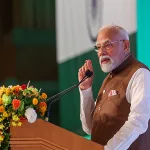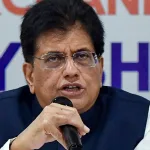Conspiracy against Muslims: PDP Chief
People’s Democratic Party (PDP) President Mehbooba Mufti has strongly opposed the Waqf (Amendment) Bill tabled in Parliament, calling it a deliberate attempt to target the Muslim community. She urged people across the country, especially from the Hindu community, to stand against what she described as an oppressive move by the BJP government.
Speaking to media persons here, Mufti alleged the bill is part of a larger conspiracy to marginalise Muslims in India. She accused the BJP government of creating an atmosphere of fear through mob lynchings, demolition of mosques and attempts to take over graveyards.
“The country should function according to its Constitution and not according to a divisive agenda. If such policies continue unchecked, India could face internal divisions similar to those witnessed in Myanmar,” she said.
The former chief minister drew a parallel between the current situation and the exodus of Kashmiri Pandits, saying, “Just as the nation still feels ashamed of that episode, it should not allow history to repeat itself with Muslims.”
The PDP Chief criticised the BJP’s approach, claiming that its policies are pushing the country towards fragmentation. She reminded the ruling party that “no government is permanent and that those in power today will eventually be replaced”.
She urged the citizens of India to wake up and take a stand before “irreversible damage” is done.
A step towards discrimination: NC’s Masoodi
National Conference (NC) leader Justice (R) Hasnain Masoodi strongly opposed the Waqf Bill, terming it an act against the rights of Muslims and a step towards discrimination. He said the party had already made it clear that such a move should not be taken.
Masoodi questioned the government’s intent behind separating a section of the population and violating their rights, arguing that no such law exists elsewhere. “Reforms should not come at the cost of diluting the control of Muslim society. This Waqf Bill should not be passed,” he asserted.
Drawing parallels with the Forum Laws, MLA Masoodi reiterated that NC’s stance remains consistent, opposing any legislation that undermines the rights of specific communities. He warned that this was just the beginning of discrimination and called for an effective opposition to the bill.
“The law should be based on pluralism, respecting every individual and their rights. However, this bill disregards those principles,” he said. Masoodi said that NC would take every legal step to resist the bill and ensure that the voices of the affected community are heard.
The MLA further alleged that the bill targets the Muslim majority, questioning why only one section was being singled out and institutions linked to it were being assaulted. “This is an attempt at oppression,” he said, reaffirming his commitment to federalism, pluralism and universal values.
Masoodi said NC members would strongly oppose the Waqf Bill when it is presented.
State should not interfere with religion: Sajad Lone
Jammu and Kashmir People’s Conference President and MLA from Handwara, Sajad Gani Lone, stated on Wednesday that the state should not interfere with religion and that the Waqf (Amendment) Bill is a matter of religion.
“The Waqf property is collectively owned by the Muslims of the country. It is the right of the Muslims to decide on these (properties) by using their institutions and systems. The state should not have any interference with the religion. We do not advocate with any religion and neither with our religion. It is gross interference. It is our matter,” Lone told ANI.
“It is a matter of our religion,” he asserted, adding “We do not know what are they (Central government) are up to? Who are they looking to appease?”ANI
BJP MP Thakur cites support from multiple organisations
Bharatiya Janata Party (BJP) Member of Parliament, Anurag Thakur, emphasized the need for amending the Waqf law, presenting the move as a means of empowerment, efficiency, and development.
Speaking during a discussion on the Waqf Amendment Bill in the Lok Sabha, Thakur referred to the proposed changes as UMMEED, an acronym for Unified Waqf Management Empowerment, Efficiency, and Development.
“This is not a Bill but an Umeed. This Umeed has empowerment, efficiency and development,” Thakur said, highlighting the growing support from various organisations for the amendment.
He thanked several groups, including the Catholic Bishops Conference of India, Church of Bharat, Kerala Council of Churches, Kerala Catholic Bishops’ Council, All India Sufi Sajjadanashin Council, and Muslim Rashtriya Manch, for their backing.
Thakur noted that these organizations, from both Catholic and Muslim communities, recognized the importance of the reform. He stressed that the Waqf law, established during the Congress regime, had contributed to widespread corruption. “It is time to amend the Waqf because this has become a base of atrocity and corruption. It is time to end and amend this,” he said.
Thakur also stated that the law’s original framework was problematic, pointing out that it led to the unchecked control over Waqf properties. “India needs liberation from the fear of Waqf because the Waqf law formed during Congress regime meant ‘khaata na bahi, jo Waqf kahe wahi sahi’,” he added.
‘Completely unnecessary’: Altaf Bukhari
As the Union government tabled the Waqf (Amendment) Bill, 2025, for discussions and passage on Wednesday, Apni Party President Syed Mohammad Altaf Bukhari said if the bill is passed, it will deprive the Muslim community of control over Waqf assets as well as their administration. He strongly opposed the controversial amendments to the existing law (Waqf Act, 1995) and said the ongoing legislation is completely unnecessary.
In a statement issued here, Bukhari said, “The government claims that this amendment bill is intended to improve the administration of Waqf properties and ensure transparency. No one opposes measures for better management and transparency, but such legislation is not necessary. Improvement and transparency can be achieved without amending the existing Waqf Act.”
He added, “Once the Waqf Amendment Bill is passed, Waqf boards will be required to register their properties with district collectors to ensure accurate valuation. Additionally, all members of the Waqf board will be appointed by the government. Clearly, once the bill becomes law, the community will lose control over Waqf boards, allowing the government to take over their administration—an outright interference in the religious affairs of the Muslim community.”
Threat to interests of Muslims: Kamal
National Conference (NC) Additional General Secretary Dr Sheikh Mustafa Kamal vehemently denounced the Waqf bill introduced by the ruling Bharatiya Janata Party (BJP).
He said the bill flagrantly violates the rights of Muslims to practice their religious duties and is a blatant attempt to unlawfully seize properties owned by Muslims.
In a statement issued here, Kamal expressed his strong opposition to the bill, labelling it unconstitutional and against the interests of the Muslim community.
He criticised the “so-called” scrutiny by a Joint Committee, arguing that the proposed changes would be detrimental rather than beneficial to the Muslim community. “The bill aims to weaken the autonomy of Waqf properties and seize lands historically dedicated for religious and charitable purposes,” he said.
He stressed that Waqf properties hold deep religious significance, comparable to fundamental Islamic practices, and any amendment affecting their status is unacceptable.
Kamal urged all MPs to consider the sentiments of the Muslim community and reject the proposed amendments, stating that such a bill should not be supported as it exceeds the constitutional framework.
He declared that the National Conference MPs will oppose the Waqf (Amendment) Bill through democratic means, questioning the sudden display of concern for Muslims by the BJP as sheer deception in the name of protecting Muslim interests.
“The Constitution of India grants every citizen the right to follow their respective religion and it is the duty of elected governments to uphold and protect this right,” he said.
The NC leader criticised the proposed amendments to the Waqf Act, 1995 for failing to consider the constitutional protection given to minorities and warned that they are bound to severely harm the interests of the Muslim community.
Assault on Muslim religious rights: Hakeem Yaseen
People’s Democratic Front (PDF) President and former minister, Hakeem Muhammad Yaseen has vehemently opposed the proposed amendments to the Waqf Act, terming them as a direct assault on the religious rights of Muslims and an infringement upon their faith.
He asserted such amendments are unjustified and go against the secular ethos of the Indian Constitution. “India is a secular country, and the Constitution guarantees freedom of religion to all its citizens. Muslims from Jammu and Kashmir and across the country have made immense sacrifices for India’s independence, and the government must respect their rights and aspirations,” he said.
The PDF leader expressed deep concern over the ruling government’s claims of “Sabka Saath, Sabka Vikas,” highlighting that such moves only serve to create division instead of fostering national unity.
He questioned the rationale behind the selective targeting of Muslim religious institutions while other religious communities enjoy autonomy in managing their affairs. “If Sikh, Hindu and Christian religious institutions enjoy autonomy, why are exclusive laws being framed to regulate Muslim institutions? This is blatant discrimination and interference in the religious affairs of Muslims. The bill should be reconsidered in the spirit of fairness and justice,” he said.
The former minister did not mince words in his criticism, calling the bill a serious attack on the Indian Constitution. “Through this bill, the government aims to dilute constitutional rights, defame minority communities, divide Indian society, and disenfranchise minorities,” he said, adding, “Their double-engine governments have even gone to the extent of restricting people from offering namaz in public spaces.”
Yaseen warned that any move to interfere with religious autonomy could have serious repercussions. He urged the Central government to withdraw the proposed amendments and respect the religious autonomy of all communities.
He said that such unilateral decisions without proper consultations would only deepen the existing trust deficit between the government and minority communities. Hakeem called upon political parties, religious scholars, and civil society organisations to come forward and oppose the proposed amendments collectively.
JDU’s Shaheen slams opp for resisting bill
Janata Dal-United J&K President G M Shaheen on Wednesday strongly criticised the opposition parties for their resistance to the Waqf (Amendment) Bill.
He accused the opposition parties of attempting to appease their vote bank or fearing the loss of land acquired through Waqf.
“The government is bringing transparency to the Waqf system. What is wrong with that? We are not just supporting this Bill; we want full transparency. The Muslim community will truly benefit once the Bill is passed,” Shaheen said.
The JDU leader alleged that the opposition has historically created problems for the Muslim community, while only the NDA government is working to make governance easier and fairer for all communities.
Violates right to freedom to manage religious affairs: AIMIM
New Delhi, Apr 02: All Indian Majlis-e-Ittehadul Muslimeen (AIMIM) National spokesperson Waris Pathan on Wednesday slammed the Waqf (Amendment) Bill, 2025, calling it unconstitutional and a violation of the right to equality and freedom to manage religious affairs.
“Article 14 of the Constitution guarantees the right to equality before the law, Article 25 is the right to freedom of religion and Article 26 ensures the freedom to manage religious affairs,” he said.
He also claimed that the BJP does not have a majority to pass the bill in the Lok Sabha and needs support from Chandrababu Naidu, Nitish Kumar, Chirag Paswan, and Jayant Chaudhary. He stated that if these individuals support the bill, India’s Muslims will never forgive them.ANI
‘Will help poor Muslims’: BJP Minority Morcha
As the Parliament gears up for a debate on the Waqf Amendment Bill, the members of Bharatiya Janata Party (BJP) Minority Morcha in Mumbai’s Borivali were seen distributing sweets and celebrating the tabling of the bill, which aims to amend the Waqf Act of 1995.
Wasim R Khan, President of Mumbai BJP Minority Morcha, lauded Prime Minister Narendra Modi, saying that this bill would help poor Muslims.
“I thank Prime Minister Narendra Modi for bringing this bill as it will help poor Muslims. Those who considered Waqf properties as their ‘baap ki jaagir’ would get under control. This bill should have been brought much before,” Khan told ANI.
Speaking on the opposition to the bill, Khan said that Waqf properties were supposed to benefit the poor but only benefited the rich. Dismissing the objections raised by the opposition, Khan alleged that they want Muslims to remain poor.
“It is their job to oppose. They have opposed every bill brought in by Prime Minister Narendra Modi. They want Muslims to remain poor, and only a few should be rich. Waqf properties are supposed to be for the poor Muslims, but the common Muslim did not benefit,” Khan said.
Meanwhile, the women from the Muslim community in Delhi and Bhopal came out in support of the Waqf (Amendment) Bill.
BJP MP Jagdambika Pal, who was the Chairman of the JPC on the Waqf Amendment bill on Wednesday, said that the Bill, which is going to be tabled in the Parliament for passing, would benefit poor and Pasmanda (backward) Muslims. Labelling it as a “historic day”, Pal said that the hard work of the Joint Parliamentary Committee (JPC), which took stakeholders in several states in confidence, has paid off. He added that JPC meetings were held and opposition was heard for eight hours every day.
BJP leader Mohsin Raza on Wednesday expressed gratitude towards Prime Minister Narendra Modi as the Waqf Amendment Bill is set to be moved in the Parliament, saying that passing of the amendments to Waqf Act would be the biggest “Eidi” for marginalised Muslims.
“On behalf of all the downtrodden and backward Muslim brothers and sisters of the country, I thank Prime Minister Modi for this Waqf Amendment Bill. This will be the biggest ‘Eidi’ from PM Modi for backward Muslims,” Raza told ANI.ANI








